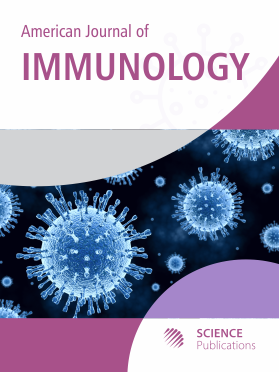Evaluation of the Immune Response to T. verrucosum Vaccines
- 1 Saddat University, Egypt
- 2 Taraba, Taif University, Saudi Arabia
Abstract
Dermatophytosis is considered as one of the most important fungal skin disease affecting both humans and animals otherwise its importance as zoonotic disease. Treatment of ringworm in cattle is expensive and time consuming especially on herd level. Vaccination can be a giant step forward to prevent the occurrence of mycozoonosis between the affected animals with ringworm and susceptible man. Fifty skins scraping samples were collected from animals (cattle, sheep and calves) suffering from skin lesions suspected to be ringworm. Then these collected samples were subjected to mycological examination and identification. T. verrucosum is the main causative agent of collected skin scrapings. Two types of vaccines were prepared from this strain (Culture filtrate and formalin inactivated vaccines). Rabbit model was used for challenge testing of the vaccines. The rabbits were separated into four groups as follow: Each group contained 3 rabbits each one was injected subcutaneously with 1ml of culture filtrate with adjuvant twice for seven days intervals. Group No. 2 rabbits each one was injected intramuscularly with 1 mL formalin-inactivated with adjuvant. The 3rd group is control positive and 4th one is control negative. Vaccination programme is done via injection twice with one week interval and the challenge by scarification of the skin with 0.2 mL of 5×107 fungal elements/mL. For 3 days. Humeral immune response was assessed by measuring anti-T. verrucosum antibodies using ELISA technique (direct method). By using statistical analysis of ANOVA, the mean optical density of anti-T. verrucosum specific IgG level in rabbits artificially immunized with culture filtrate with adjuvant vaccine significantly increase from (1.97) post first vaccination to reach (2.43) post second vaccination and still high after challenge with the virulent T. verrucosum strain (2.32) when compared with control positive (1.57). The results revealed that both type of vaccines induce good humeral immune response in vaccinated animals. Culture filtrate vaccine used as a treatment in infected farm animals by two doses within 2 weeks and noted that healing occurred.
DOI: https://doi.org/10.3844/ajisp.2013.139.147

- 3,442 Views
- 3,012 Downloads
- 8 Citations
Download
Keywords
- Verrucosum Vaccine
- Dermatophytosis
- Immune Response
- Zoonotic Disease
